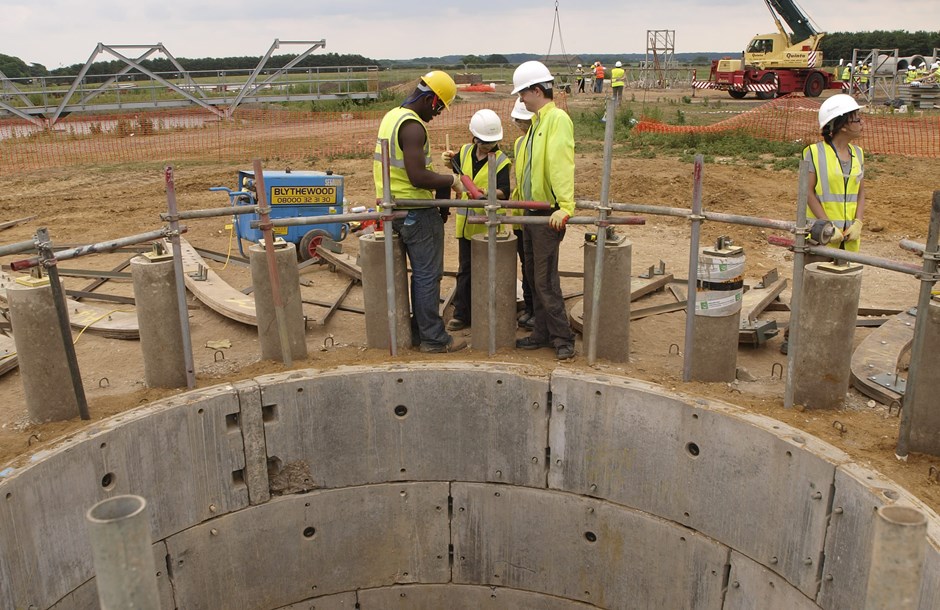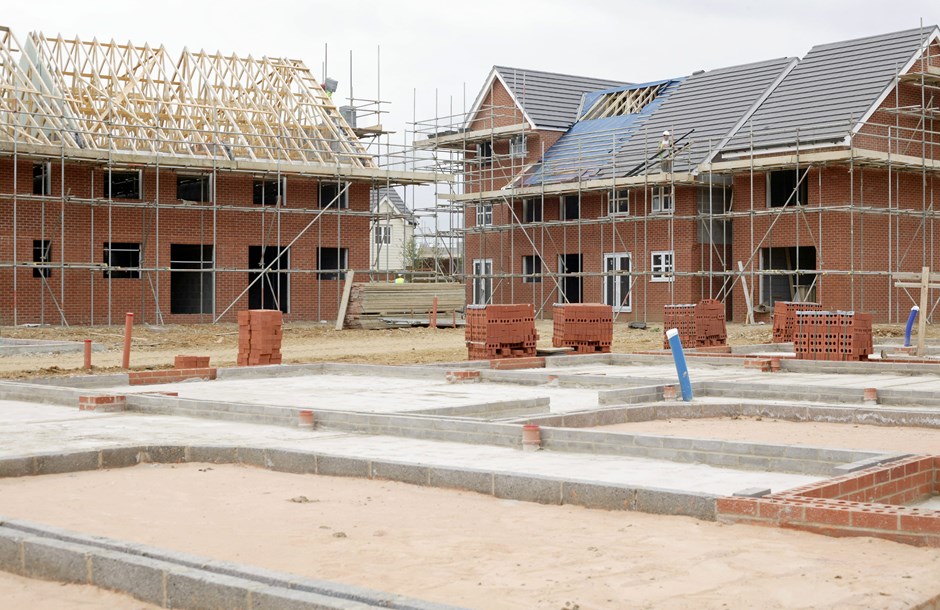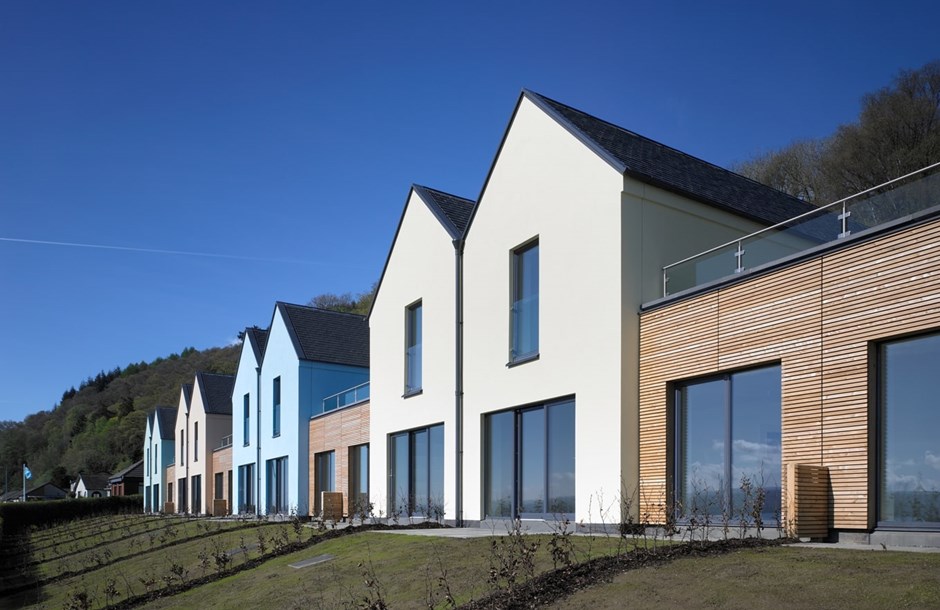Sustainability in construction
The construction industry is one of the largest users of global resources and contributors of pollution. It therefore has a huge responsibility to aid sustainability. But what exactly is sustainable construction and what are the benefits? Read our guide to learn more.
What is sustainable construction and why is it important?
The construction industry must help to build a world that will improve the lives of future generations and use eco-friendly methods. Working sustainably involves meeting demands of the expanding population, as well as supporting the environment in the long-term.
What is sustainable construction?
Sustainable construction means building with renewable and recyclable resources and materials. During construction projects, care must be taken to reduce waste and energy consumption where possible and protect the natural environment around the site. The end result of a sustainable construction project must be an environmentally friendly building or environment.

Why is sustainable construction important?
According to the Supply Chain Sustainability School, building and construction works in countries which are part of the Organisation for Economic Co-operation and Development (OECD) use:
- 25-40% of total energy
- 30% of raw materials
- 30-40% of global greenhouse gas emissions
- 30-40% of solid waste generation.
This is why sustainable construction is developing as a solution.
The challenges facing sustainable construction
There is a perception that sustainable construction is expensive, which can make it seem the less attractive option. However, The World Green Building Council’s 2018 report shows that although cost remains a concern, owners of green buildings report that money is saved through reduced operating costs thanks to the sustainable materials used
How is the construction industry currently tackling sustainability?
With the publication of the Clean Growth Strategy, the Government has outlined its commitment to reduce the UK’s greenhouse gas emissions by at least 80% by 2050. Construction is playing its part in this by the following initiatives.

The Government’s Sustainable Construction Strategy
For construction the original strategy set in 2014, is now Construction 2025 - providing a clear path for improving sustainability in construction. This strategy includes details on overseas trade, smart technologies, and green construction and is part of the government’s industrial strategy.
BREEAM
BREEAM (BRE Environmental Assessment Method), is a global sustainability standard helping to improve the environmental performance of buildings. The Green Guide also assesses the environmental impacts of materials during their life cycle.
ISO14001 Certification
ISO 14001 Environmental Management is a standard for a company’s Environmental Management Systems. It aims to reduce waste management costs and shows commitment to protecting the environment. It also helps resource efficiency, which is very relevant in construction when it comes to materials used. Find out more here.
Corporate Social Responsibility (CSR)
Sustainable construction can help your organisation’s reputation by demonstrating your sense of corporate social responsibility, which is how businesses conduct themselves in order to have a positive impact on society. Ethical considerations and green alternatives to materials are both ways the construction industry can demonstrate CSR.
The benefits of sustainable construction
Sustainable construction poses numerous benefits which can be separated into the following three categories:
Environmental benefits
Using renewable energy and building materials will help in the fight against climate change. Plus, greener buildings will improve waste management and emissions. According to The World Green Building Council:
“Green buildings can not only reduce or eliminate negative impacts on the environment, by using less water, energy or natural resources, but they can - in many cases - have a positive impact on the environment (at the building or city scales) by generating their own energy or increasing biodiversity.”
Financial benefits
Sustainable construction is sometimes criticised for using expensive materials, but green buildings are often considered more valuable than traditional ones. Data has shown they achieve a 7% increase in their value over traditional buildings, plus savings on utility bills for tenants or households are also more likely through sustainable construction projects.
Social benefits
The World Green Building Council’s 2018 report states:
“The social benefits of green building have been growing as a driver, particularly occupant health and wellbeing, which reflects the importance of people in the built environment…”.
Not only does sustainable construction mean improved health for the people who use the buildings, it also has been shown to improve workers productivity during construction thanks to better surroundings, work environments, and noise protection.
Materials used in sustainable construction
There are endless ways in which construction companies can improve sustainability and reduce their carbon footprint, such as:
- Using renewable energy
- Using on-site water treatment plants to minimise waste
- Recycling and building with renewable or waste materials, e.g; cigarette butt bricks.
Other materials used in sustainable construction are:
Wood
Wood is a great material as it doesn’t require a lot of energy to become a building material. Properly managed forests not only supply renewable material, but also provide a biodiverse habitat for wildlife preservation.
Recycled metals
Plastic is fast becoming a sustainable construction material which is relatively easy to obtain thanks to an abundance of it existing in most societies. In some places, plastic and other rubbish are turned into concrete replacements, reducing greenhouse gasses and helping to stop landfills becoming overrun with materials.
Sustainable concrete
Concrete is a widely used synthetic material, but also one of the most environmentally unfriendly. Its manufacture alone is responsible for about 5% of global carbon dioxide (CO2) emissions. Fortunately, many companies are now exploring ways to reduce emissions by creating alternatives with plastic and other recyclables, which can reduce the carbon dioxide production by almost 50%.
Mud bricks & wool bricks
Bricks use kiln-fires to increase their strength resulting in pollution through greenhouse gases, but in 2010 researchers from the Schools of Architecture at the University of Seville, Spain and the University of Strathclyde in Glasgow, UK found new and greener ways to produce bricks just as strong, with untreated clay or wool as part of their composition.
Straw bales
Bales can be used in place of concrete or plaster for insulation. Straw is not only sustainable, but affordable too, which helps keep the costs of building materials down.
Environmental jobs in construction
There are a few options open to you in construction if you’d like to focus on the environmental. It’s rewarding work which will have an impact for generations to come.
Environmental advisor
Environmental advisors ensure construction projects comply with environmental regulations and meet set targets. They do this a number of ways, including managing waste disposal and reducing air and water pollution.
Environmental engineer
Environmental engineering is all about protecting the environment by reducing waste and pollution during construction. Environmental engineers work developing renewable energy sources to make sure materials are used in the best way possible, and they design and manage pollution control technologies.

Sustainability manager
Sustainability managers oversee ensuring their company is working towards (and staying) green. They develop, implement, and monitor environmental strategies. Read more about what it's like to be a Sustainability Manager.
Contact us
Would you like to be involved in sustainable construction? We can offer training or answer any questions you have about a particular role, so get in touch with us on our social media:
If you have any queries, get in touch with us on our social media:
Instagram - @goconstructuk
Facebook - @GoConstructUK
Twitter - @GoConstructUK
